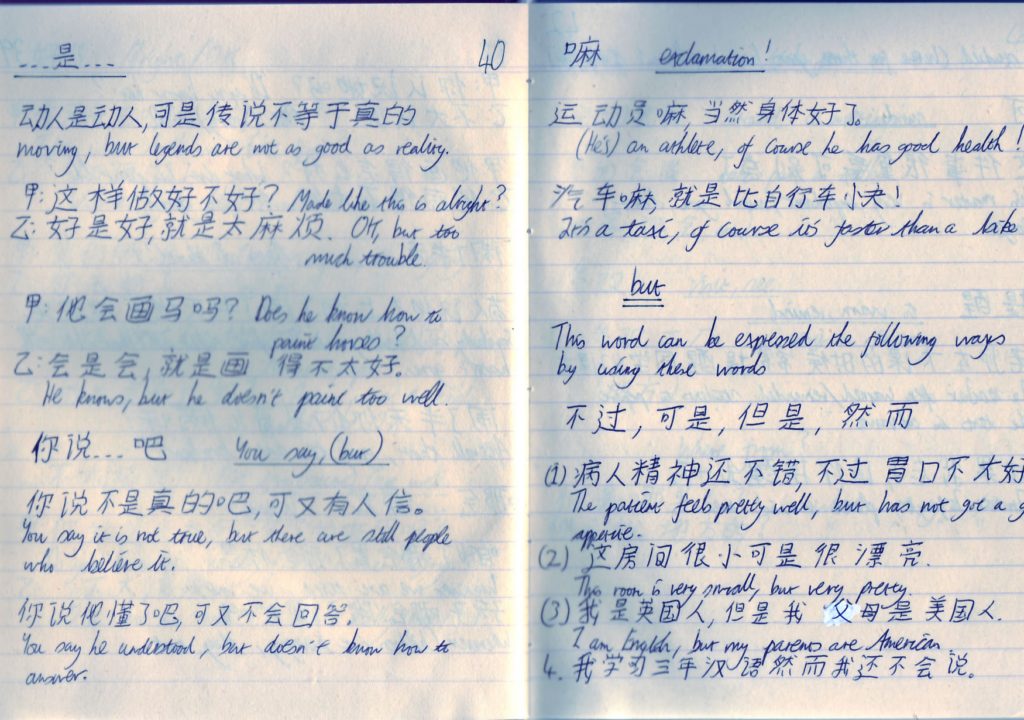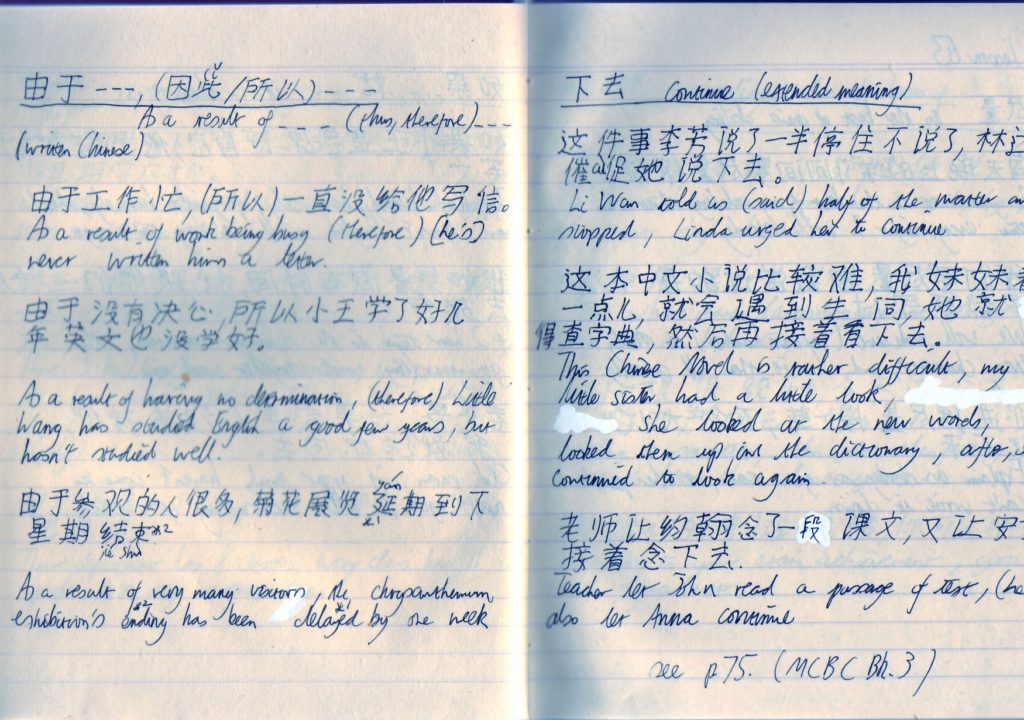No Shortcuts
Maybe I was a slow learner. Maybe I was overconscientious. Maybe I simply didn’t trust my own abilities. Maybe Chinese was just too difficult for me. I don’t know. But I do know that initially I had only one method of learning Chinese: writing. Flashcards of characters, example sentences, lists of stock phrases, lists of specialist terms, lists of grammar points, lists of explanations. I filled dozens of notebooks from cover to cover. Whenever I encountered surprises or odd elements of the language, I would make notes. Notes on everything went into these books. Eventually, I was even cross-referencing my notes.

Now, of course, I realise that this method was not optimal. It was slow and manual. Ideally, I would have used larger sheets or higher-tech, but my resources were primitive. But the method has merit. It did help me learn, provided I practiced verbalizing what I had memorised and applying the language spontaneously, reactively, creatively, and relevantly in an ad hoc, natural manner.

It took me a long time to realise that memory alone was insufficient. Information has to be activated for knowledge and competence to be achieved, and for long-term retention. While staying in China, I had various roommates (foreigners got to share a room with just one person, while six Chinese students shared the same size of room). In the space of a year, I shared with three roommates, two Japanese guys and one Korean guy.
(I beat the Korean guy at go and caught him looking through my stuff, so he was eager to slink off before I shamed him publicly.)
The spoken Chinese of all three was poor, shockingly so. But their ability in written Chinese was very strong, since most of the characters were familiar to them through their own languages (especially Japanese, but high-level Korean also incorporates Chinese characters “hancha”). These guys spent 90% of their language learning time on reading and writing, but they couldn’t understand more than a few words spoken to them by ordinary people in the street.
Their spoken Chinese ability was also compromised by their group inclinations. The Japanese and Koreans were present in such numbers that they essentially had communities. Thus, their interaction with the Chinese (and also with other groups of foreigners) was a collective affair, meaning no more than a handful of them really needed any functional fluency. Within a couple of months, my spoken Chinese was outperforming theirs. I had no community and didn’t want one. I was forced to apply the lingua franca (lingua Sinica).
